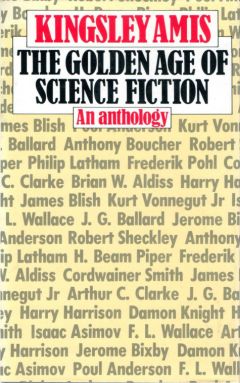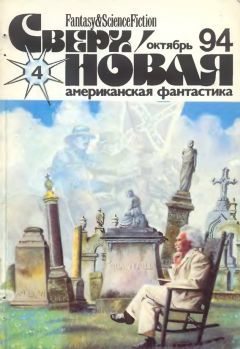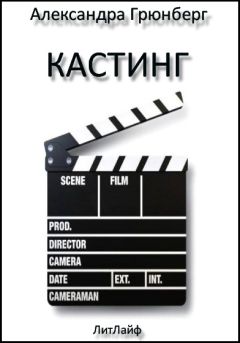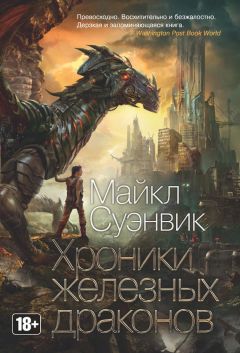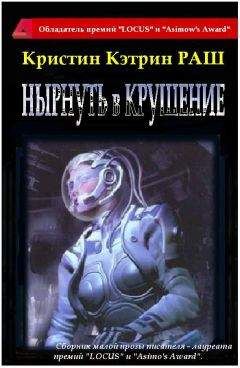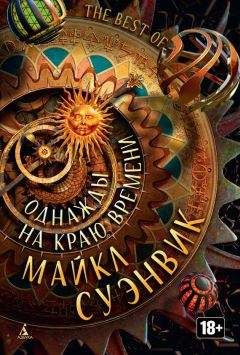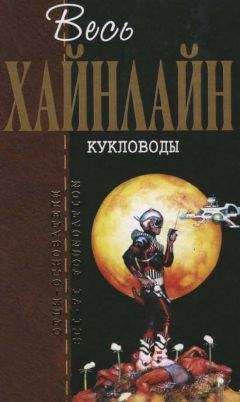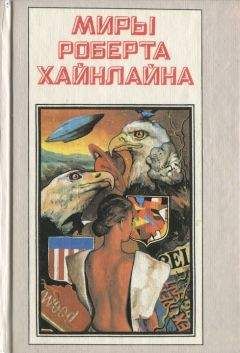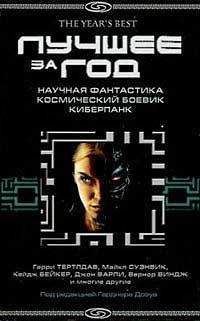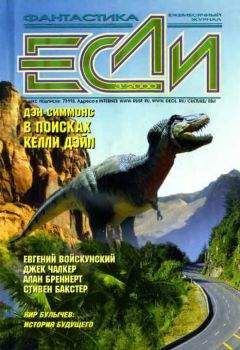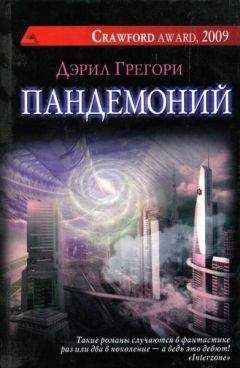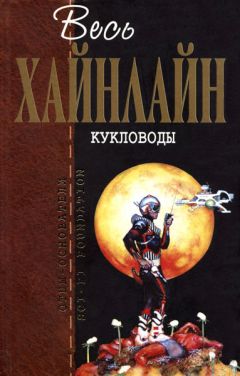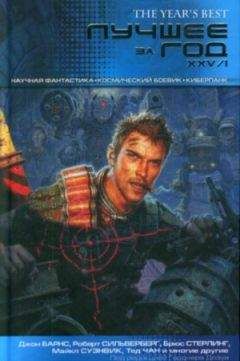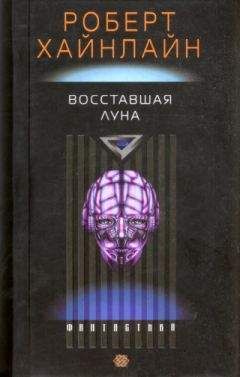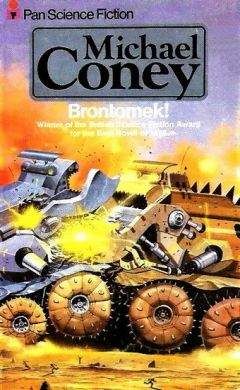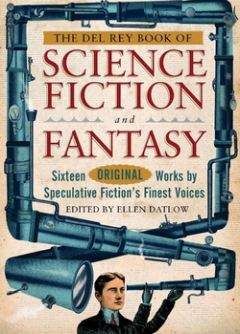Андрей Демидов - Natotevaal. War Chronicle
Все авторские права соблюдены. Напишите нам, если Вы не согласны.
Описание книги "Natotevaal. War Chronicle"
Описание и краткое содержание "Natotevaal. War Chronicle" читать бесплатно онлайн.
This novel, written over ten years ago, not only did not lose its sharpness and relevance, but, on the contrary, is intended to be a significant milestone for all intelligent readers. For all those who are still interested in secrets of space and the dual and contradictory role of scientific progress in modern society, and feelings of the characters who undergo the hardest tests of courage, devotion to duty and humanity. Moreover, the novel "Chronicle of Natotevaal" has the potential to become a cult product for fans of science fiction – it is imbued with romance of heroism, great sense of humor and it is literally impossible to break away from reading it. But, nevertheless, the novel is anything but entertaining light reading: the author raises complex issues of science, politics, philosophy and moral before his heroes and the readers. In the tradition of the best works of fiction of the 20th century, Andrey Demidov reveals the unknown in his novel, something that might either happen tomorrow or will never happen at all. The author clearly highlights the difficulty of the way to complex, unknown future – it is a long and difficult path, with mistakes and defeats on the way; and the victory will not be easy, but endured, with a promise of new ways and new challenges. To many of the questions posed by Andrey Demidov in the novel "Chronicle of Natotevaal" humanity does not yet have sufficiently complete and convincing answers. Humanity will search for these answers as long as it exists; it is obliged to, if we want to go forward, not blindly. Searching through fiction in particular, and the book you now hold in your hands will become a reliable, but demanding assistant, and possibly – your spiritual guide to a modern, distorted world. Because “imagination – is just a part, although a significant one of what usually denotes reality. Ultimately, it is unknown to which of the two genres – reality or fiction our world belongs”.
Natotevaal. War Chronicle
Foreword
‘Imagination – is just a part, although a significant one, of what usually denotes reality. Ultimately, it is unknown to which of the two genres – reality or fiction our world belongs.’
H.L.Borges
Philosophy and science fiction, like any other forms of culture can interact in many different ways. Certainly not all their features are equal.
If Borges, for instance, describes philosophy as a kind of fiction with inimitable literature-centrism, Derrida principally refuses to distinguish between (fiction) literature and philosophy, and in the best case fiction critics are only able to collect images and references to philosophy in science fiction works, thus philosophical consideration of fiction is hardly a noticeable opportunity.
In pursuit of reality, and in an attempt to lay the foundation of scientific knowledge, philosophy not only ignored imagination and fantasy along with their products (relating to purely subjective orders) but systematically and consistently tried to get rid of them by all means, so as to approach objectivity and – ideally – entirely possess it.
Only, perhaps, the establishment of non-classical way of philosophizing, that allowed and even suggested alternative interpretations of reality, has gradually changed the attitude to fiction.
It is peculiar that almost at the same time – in the second half of the XIX century – formation of proper literary fiction occurs (of course: Jules Verne, G.Wells).
Only in the second half of the XX century philosophy started to conduct special studies of the imaginary, virtual, semantics of possible worlds, etc. (along with gaining fiction maturity).
However, actual fiction still remained below the horizon of perception, although only fiction provides philosophy with a special field-space for deploying extravagant concepts, as well as unique tools for modeling and experimentation.
In order to highlight these features by heuristic fiction of philosophy and outline the shapes of the appropriate project, it is useful to see philosophy as an operator, which is applied to science fiction as a phenomenon.
If philosophy assumes the reflection of ultimate bases of culture as a whole, claims to critically examine the diversity of the world in general, then by the same gesture, which provides its versatility, condemns itself and has to delve into the specifics of each particular cultural form, each area and region of the world.
For instance, a mathematician studies mathematics, and a musician – music, while figuring out how music differs from mathematics or what comprises one or the other, is not of their concern, but the task of philosophy in its applied sense, so to speak.
Of course, the point here is not about each individual object as such – this table or that tree, though everything depends on the approach.
Philosophy sprouts: in addition to the philosophy of science separately appears the philosophy of mathematics, philosophy of physics and philosophy of biology, along with philosophy of nature and philosophy of culture – and even the philosophy of history, philosophy of law, philosophy of art and so on and so forth.
Therefore, philosophy – in terms of its various fields of application, which potentially generate not only its separate directions, but whole disciplines – it is appropriate to consider it as an operative: "philosophy X" or even "philosophy Y", where anything may serve as an independent variable.
Another thing is that a simple permutation which comprises a bare slogan or manifesto, would certainly be quite insufficient – forming a research agenda requires more or less developed and reflexively drawn project.
In this case, philosophy, like phenomenological consciousness, acquires sustainable intentionality, allowing not only to identify and investigate the specificity of the corresponding sphere, but also – by revealing its ultimate bases – achieve fundamental conceptual results.
Thus one of the methods of interaction of various cultural dominions is implemented – by reflecting one on/in the other, both are modified and thereby get an opportunity to spread, fulfilling their programs with the new material.
Strictly speaking, the status of fiction in itself represents a major challenge, or rather, a whole set of problems.
Fiction, first of all as a product of imagination should seemingly confront reality or actuality: as nonexistent to existing.
However, even the critics of traditional philosophical metaphysics of presence has to acknowledge that everything we say, everything we can think of, is there in a certain way, though differently (and therefore non-metaphysical ontology should be based on a fundamentally different basis – but that is another story), thus straight oppositions do not work and cannot work.
Secondly, fantasy as a set of art depicting/representing/describing the imaginary, would have to confront realism, on the one hand, which also reproduces reality and modernism and the avant-garde on the other, which more or less avoid using references, eluding to the more or less understandable (syntactic, semantic or pragmatic) performativity.
However, a critical review of the so-called realism shows that realism, in its full and strict sense not only did not and does not exist, but is generally impossible – because any images of reality would inevitably be imagined (at least to the extent where we distinguish one and the other); after all, this is indicated by the ability of art photography, which directly and almost immediately (literally photographically) reflects the reality, regardless of our perception of it. On the other hand, a careful study of the indirect features of reference removes the inflexibility of its contrast to performativity.
Thirdly, science fiction is in no way related to one form of art, embodied – along with literature and, say, painting – also in cinematography, theater, drawing, comic books, and perhaps even in sculpture.
And even in amusement parks and – necessarily – in computer games: if they can be classified as art, then to a very special, interactive sphere.
In addition, even literary science fiction can neither be classified as a genre, strictly speaking, because it brings together works of a variety of genres (and also of different lines – a novel, a story, a narrative…, space opera, alternative history, detective fiction…) nor as a destination because it can quite easily include different styles (cyberpunk, turbo-realism…), not to mention the traditional, more or less stable division into the two main branches – the science fiction and fantasy.
Moreover, fantasy forms a whole subculture – clubs, a system of conferences, journals and symbols (souvenirs, "baubles", garments, toys, gadgets, meshes, artifacts…), a variety of amateur performances and numerous communities; a set of games (such as role-playing, and multi-user computer games – local network and online) – perhaps, no other social formation can boast of such a diversity.
Nevertheless, it is permissible to speak of science fiction as a phenomenon, the features of which science fiction philosophy is intended to clarify, to such extent in which the entire conglomerate of this diverse phenomena may be lawfully called in short, and to the extent that it can somehow be separated from the rest.
Although we can talk about a more or less pure forms of fiction in the first place – literature, painting, cinema, and supposedly computer games.
Despite the fact that problems of philosophical understanding of science fiction are extremely varied, we can try to group them into a few main lines of problematization – according to the traditional matrix of leading philosophical disciplines.
Ontology of fiction in this case will include a series of issues related to the existential status of products of imagination and fantasy, from mythological characters to heroes of art that represent the original, separate reality – different from the usual, ordinary, standard with its unprecedented novelty and uniqueness.
In fact, fantasy creates special worlds, thus the study of specific rules for creating these kinds of possible and impossible worlds will also refer here: just as postmodernism discovers connections, that are solidly unbreakable, so the rampant variety of fantasy worlds reveals some invariants.
For instance such rules as: the coherency of individual components, fragments and elements; their coordination with one another, fullness of all the emerging opportunities; introduction of the main principle of realizing the scope of all possible layers of meaning in the unity of conceivable horizon.
The situation of a seeming a priori and absolute freedom of the creator in fiction paradoxically uncovers some strange inner necessities and limits, that are defined not only by the specifics of a selected representation language or the coherence of discursive sequence, but also by some, clearly ontological terms-conventions.
Freedom and necessity turn out to be the reverse sides of each other, although not in their dialectical sense.
The development of these new virtual worlds helps to provide better arrangement and ontological characteristics of our world, and the diversification of ontologies and related concepts – the conditions and limits of the ontology itself.
Gnosseology of science fiction will include another series of questions, seizing the ultimate learning experience, modeling of exotic cognitive situations, analysis and presentation of objective consciousness realised with the help of artificial means, as well as unique means of detection and dispersal of visible illusions.
For example, an alien – is a radical instance of removal that allows to adopt a maximally external attitude and distinguish some features which would not be obvious otherwise: the conventionality of the usual, customary, traditional and non-obviousness of the evidence itself.
Unexpected turns of events, large-scale coverage of the grand space-time intervals, sophisticated scenery give the opportunity to see the limits, denoted by the acknowledged meanings and boundaries of natural intuitions and interpretations; realize the inert stereotypes of mundane consciousness.
Fiction as knowledge finally undermines the solid oppositions of the discovered/invented, the found/made, the real/imaginary.
Fiction modeling demonstrates the capabilities of the most flexible thinking and creative ways of comprehending the world: the creation of exotic worlds can tell something about our world also – regardless of whether the scientific or mythological fiction base is being used.
The Heuristic Functions of fantasy in general were among the first to be observed.
This is also backed by the discussion of problems with communication and understanding, which can be seen in colorful contrast to the highlighted situations of meeting of different civilizations, cultures and societies that belong to different worlds, planets, strata or layers of reality – in this sense, the well-known TV series «Star Track» becomes the embodiment of the universal hermeneutic project as it purposefully indicates a potentially infinite attainability of understanding.
The axiology of fiction includes another series of questions that draw the attention to the subtle aspects of working with values.
Properly speaking, there is no such notion as values of fiction, of course – not because it is impossible to estimate the products of fantasy (that is quite possible), and not even because it is impossible to come up with things or ideals, worthy of aspiring no less than ordinary and mundane (this is also feasible, although with an even greater difficulty), but simply because it is impossible to evaluate something that is make-believe: in a sense of combining the perception of some value as a value, worthy of becoming a finite basis of goal-setting, and – at the same time – as an arbitrary convention, that can easily be replaced at any time, or freely given up.
Another thing is that fiction provides a unique opportunity for revaluation of all values (almost according to Nietzsche’s project), or at least for evaluating different versions of the hierarchy of values and preferences.
But in any case, there should be a certain binding to ones or the other values accepted as default, because otherwise it would be impossible to perceive new, unusual and unfamiliar ideas as essential.
The utmost escapism is inevitably related to the main flow of life – the question is always about the desire to escape from something and the destination of running.
However, there are things which one can never get away from – himself for example, – and this turns out to be the most important, the most valuable thing, and that is what one has to deal with in the long run, but in order to find this balance, everything has to be checked for strength and sustainability – as well by the means of fiction.
Of course, the diversity of aspects of fiction capabilities listed above is in no way exhaustive.
At least two relatively autonomous aspects are worth mentioning separately, as they are distinguished on other grounds.
The social aspect of science fiction – and probably the most significant behind its limits – is primarily associated with the expression and comprehension of the ideals of social order (directly and primarily in the form of various utopias and anti-utopias – respectively, the positive and the negative), and also provides the development of the future, with a reinterpretation of the past (alternative history), with recovery of the socio-cultural condition of the world and forming human relationships, not to mention overcoming xenophobia and tolerance development.
For example, Rorty highly appreciates the role of fantastic experiments carried out in the novels of George Orwell, which help to understand the nature of a man, the formation of the modern concept of a fair society and avoidance of violence.
By the way, the heated debates on the program of so-called gender studies elegantly complement the fictional models of societies, cultures and civilizations, built on a completely different (from what we are used to) principles: it is not just about the possibility of existing of other life forms (in one case – the androgynous, and in the other – proclaiming and accepting dominance of homosexual contacts over heterosexual), but also more exotic ways of existence – the robots, for instance, which also happen to be discriminated like women, blacks, gays, children and other peculiar characters.
Anyway – fiction is indispensable in demonstration of the fundamental conditionality of all forms of human interaction, even if it reproduces the steady absoluteness of the required functions.
Подписывайтесь на наши страницы в социальных сетях.
Будьте в курсе последних книжных новинок, комментируйте, обсуждайте. Мы ждём Вас!
Похожие книги на "Natotevaal. War Chronicle"
Книги похожие на "Natotevaal. War Chronicle" читать онлайн или скачать бесплатно полные версии.
Мы рекомендуем Вам зарегистрироваться либо войти на сайт под своим именем.
Отзывы о "Андрей Демидов - Natotevaal. War Chronicle"
Отзывы читателей о книге "Natotevaal. War Chronicle", комментарии и мнения людей о произведении.






